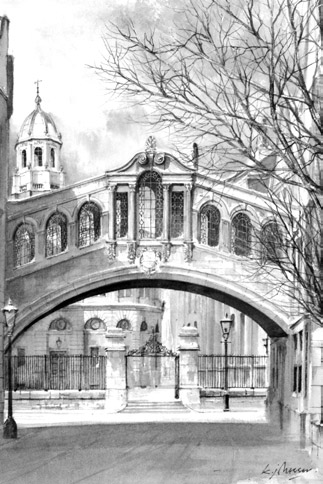Sixteenth-century Bible’
by Brian Cummings
Report by Beatrice Groves
December 2003
Brian Cummings’s excellent lecture was both witty and erudite, and opened up interesting questions about Shakespeare’s relationship with the Bible generally and the specific case of ‘luck’ in particular. Cummings began his lecture with the intriguing fact that ‘luck’ begins to be phased out of the English Bible after Tyndale, disappearing entirely from the Geneva Version. The Geneva version, along with the Bishops’ Bible which Shakespeare would have heard in church, is probably the version that Shakespeare probably knew best, as shown by his allusions to it and the evidence that he sometimes alludes even to the Genevan annotations: something that suggests quite careful reading on his part. There is little evidence that Shakespeare was aware of Tyndale’s version, except as it survives in later translations, although there is one tempting connection in the name of one of Shakespeare’s best clowns. When Bottom wakes after his encounter with the fairy world, his speech (‘The eye of man hath not heard, the ear of man hath not seen, man’s hand is not able to taste, his tongue to conceive, nor his heart to report what my dream was’) is clearly a scrambled, humorous version of 1 Corinthians 2:9. In Tyndale’s translation this unknowable gift of God is described as ‘the bottome of Goddes secretes’, a phrase that was refined in most later Bibles to ‘the deepe things of God’. Thomas B. Stroup first suggested that Shakespeare’s schoolboy titter over this phrase has been literalised in the delightful physicality of his clown, Bottom, who alludes so explicitly to this scriptural passage.

Brian Cummings set himself a difficult task in forging connections between Shakespeare and Tyndale, but he accomplished it through a similar delight in what he calls Tyndale’s felicitous, homely style. Cummings’s investigation, although excellent on the subtle nuances gained from close attention to particular words, looked predominantly at the wider question of the connection of ideas between Shakespeare and Christianity: in particular the idea of predestination and Hamlet. Cummings argued that the complexity of luck in Hamlet engages with the theological thinking of the time in which the complexities generated by predestination and luck as a sign of God’s grace were implicitly recognised by theological writers.
Cummings, sensitive to the charm of Tyndale’s style, was subtle on the possible connections between Calvinist thinking and Hamlet’s thinking, suggesting the complexity which scholars are eager to find in Hamlet’s exposition on fate and free will. He draws attention to the self-reflexiveness of a revenge plot in which the knowledge of how such stories end is made part of the plot, and the connection of this with the sixteenth century understanding of God’s plan. He even finds Hamlet’s word for the state of mind with which we must meet this foreordained, incomprehensible future - readiness - in a Calvinist treatise on special providence. The well-known fact that Hamlet is the first revenge tragedy to be aware about its status as such, and to make our expectations - our knowledge and his knowledge - part of the onus which the revenger has to bear, in the context of Cummings’s careful study of the word luck and its theological connotations, gains a new incisiveness.
The main achievement of Cummings’s lecture was perhaps that, through his linguistic scholarship, it showed how theological writing can be shown to share the subtlety and ambiguity of Shakespeare’s own treatments of such subjects, an insight which brings Shakespeare closer to the theological context of his time. As Cummings concluded ‘Shakespeare, in creating such a complex world of chance in Hamlet, was not reacting against this theological sensitivity, he was participating in it’.